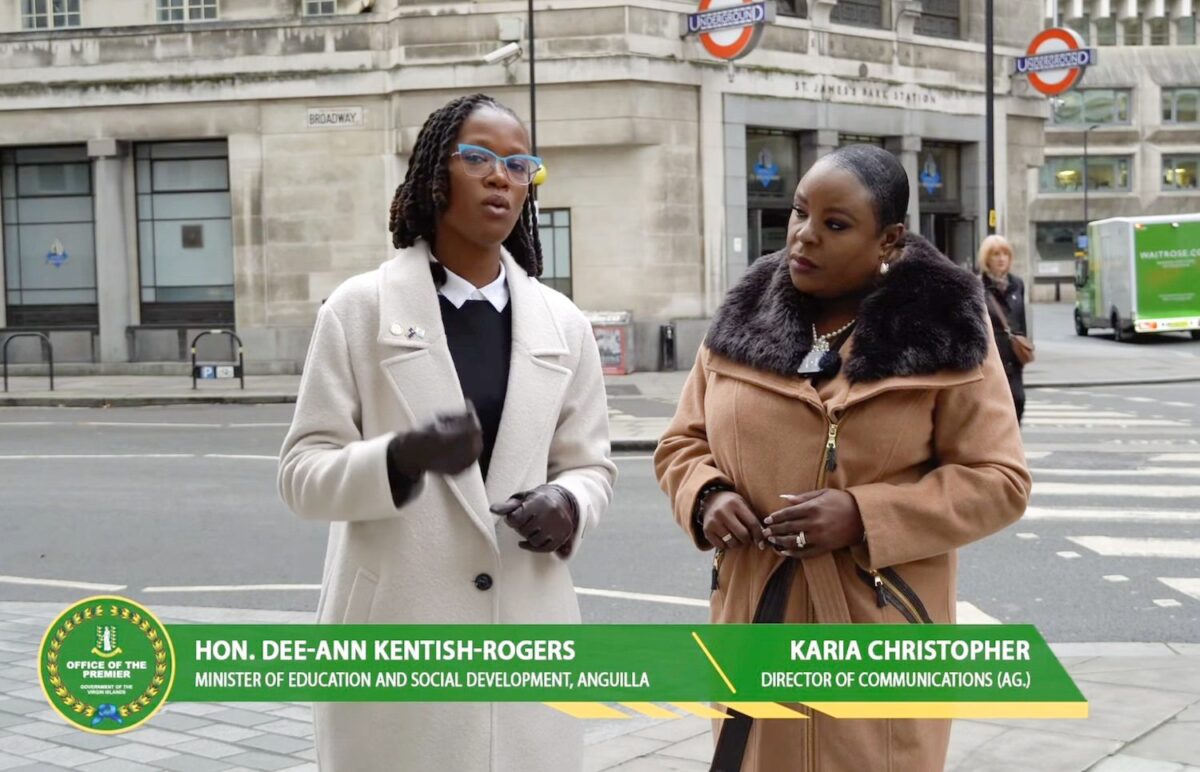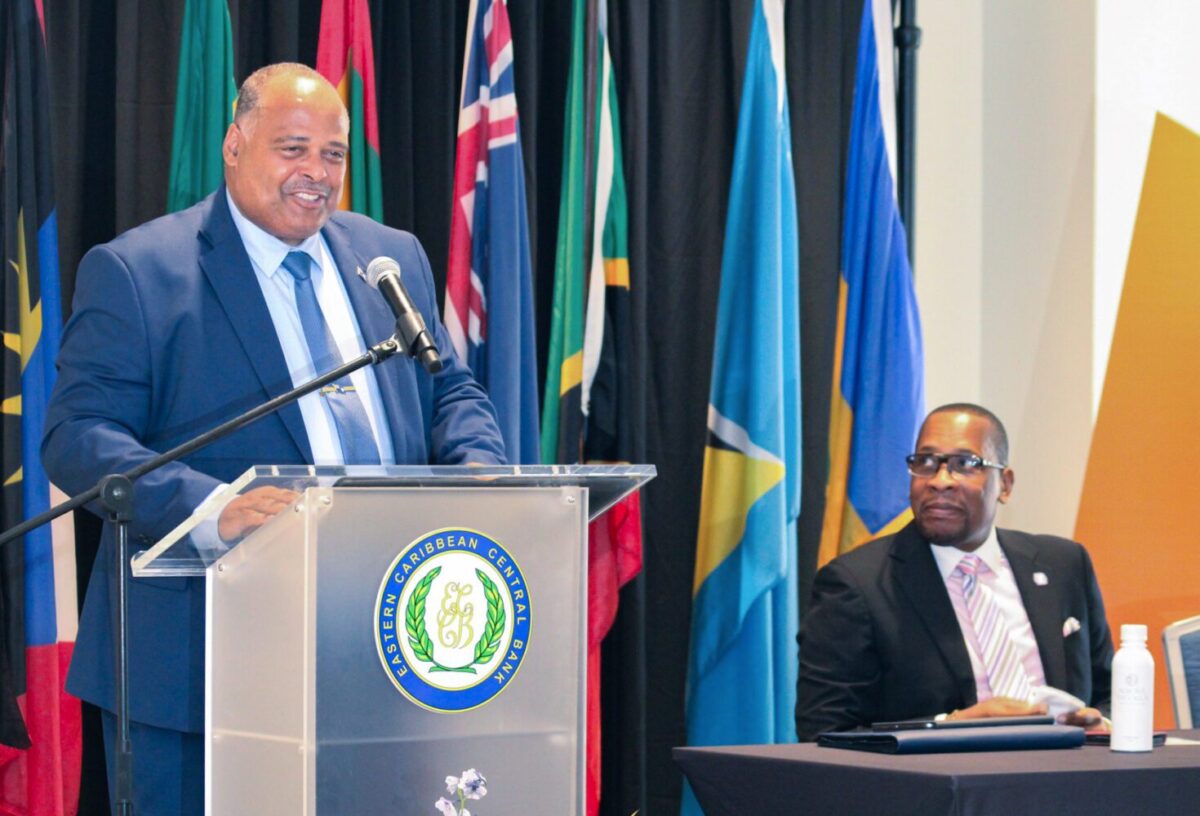Anguilla’s Minister of Education and Social Development, Dee-Ann Kentish-Rogers, has underlined the importance of attending meetings like the Joint Ministerial Council (JMC).
The event, which connects the United Kingdom’s Foreign, Commonwealth and Development Office with government officials from its 14 overseas territories, is currently being held in London.
Over four days, Minister for the Overseas Territories, Stephen Doughty, will lead conversations on key issues including security, irregular migration, financial transparency, climate change, infrastructure and economic resilience.
Kentish-Rogers spoke candidly about the event during an interview on the streets of London with Karia Christopher, acting director of communications in the Government of the Virgin Islands.
“There’s a narrative underlined by a lack of understanding what is the purpose of the JMC,” she said, when asked if the public in Anguilla had concerns about officials attending the event.
However, the governments of each of the overseas territories understand “very intimately” that the UK plays a huge role as the administrative power, she said.
The minister explained that relationship impacts policies, what economic projects the territories are able to pursue, as well as opportunities available to students.
“And as a minister of education, I can tell you directly that the Joint Ministerial Conference plays a significant role in the outcomes available to all people on the ground,” she said.
Kentish-Rogers gave the example of availability of tuition fee loans for overseas territory students, enabling them to have access to educational institutions in the UK.
“A lot of those negotiations start from the Joint Ministerial Council, so when you’re talking about tangible outcomes, that’s part of what the JMC is for,” she said.
She told Christopher that Anguilla, in particular, relies on the United Kingdom to ascent to its budget.
“That means they have to agree with the policies we set out in our budget in order for us to pass and get monies to disperse for public services,” she explained.
“So it’s very important to understand that dynamic and to have open conversations about the challenges we face in our territories.”
She said that it is important to ensure that there is an alignment between the UK and the Anguilla so that the contents of the budget are understood.
For example, the education minister said, one issue being faced across several of the territories in the Caribbean is increased crime and gang violence.
“So when we say we want to increase our budgetary expenditure for police, we want to have that UK support,” she said, adding that may include UK officers being sent over to assist.
Kentish-Rogers explained that there are also other important issues like infrastructure development, economic diversification and climate resilience.
“And the question then comes, where and how does the UK stand to assist or actually maybe hinder… in the pursuit of that agenda?”
She reminded that the Caribbean overseas territories are not able to represent themselves at United Nation conferences such as COP29 so it is important the UK advocates for the islands.
“These are the very important matters that we need to actually have direct intervention with the OTs to ensure that our interests are reflected accurately,” she said.
“As we always say, decision making here in the halls of power at Westminster are so separate and far apart from the decision made thousands of miles away in the Caribbean overseas territories.
“So we need to have that alignment in order for it to be an effective partnership.
“Otherwise you’ll see a lot of top down decision making from the UK that doesn’t reflect the desires of the people of the various territories.”
Watch the interview in full below:





